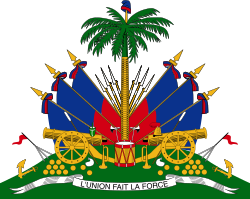| |||||||||||||||||||
All 58 seats in the Chamber of Deputies 30 seats needed for a majority | |||||||||||||||||||
|---|---|---|---|---|---|---|---|---|---|---|---|---|---|---|---|---|---|---|---|
| |||||||||||||||||||
 |
|---|
Parliamentary elections were held in Haiti on 11 February 1973. [1] Over 300 candidates contested the election, all of whom were members of the National Unity Party and supporters of President Jean-Claude Duvalier. [2]
